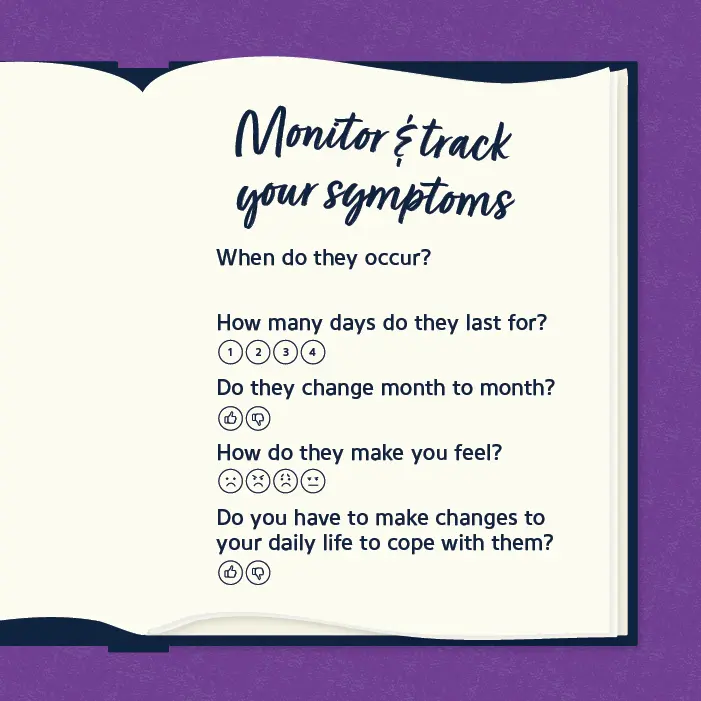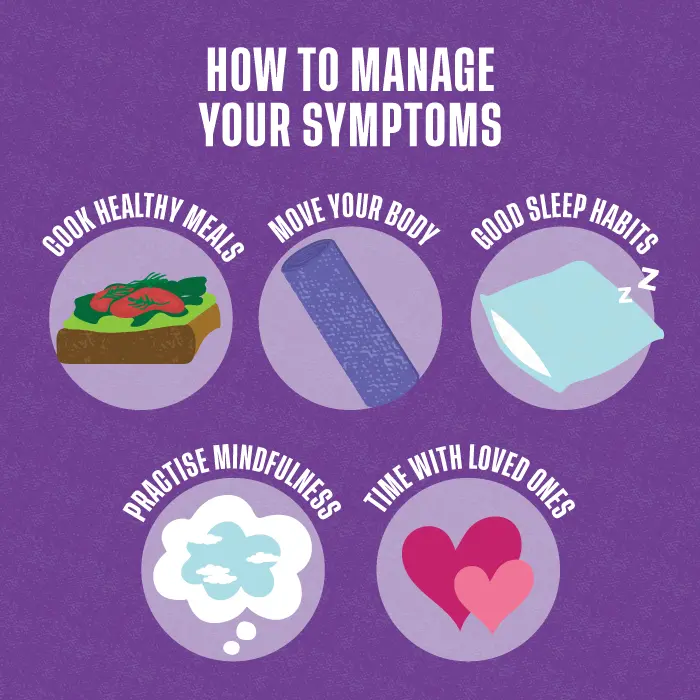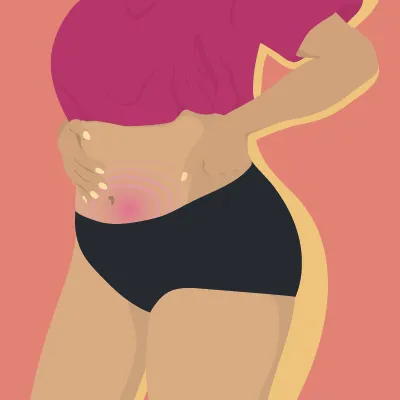Sep 30, 2024
The Other PMS: What Is Post-menstrual Syndrome?
Many of us know all about the symptoms of pre-menstrual syndrome (PMS). The bloating, cramps, headaches, breast tenderness, mood swings, irritability, difficulty focusing, food cravings, insomnia, or the general ‘blah’ feeling you get before your period arrives. Then there’s pre-menstrual dysphoric disorder (PMDD), which is a more severe condition and related to the body’s response to hormonal changes. Did you know there’s another condition relating to your menstrual cycle and wellbeing? Post-menstrual syndrome shares similarities to PMS (and confusingly, the same initials) but as you might guess, it occurs after a person’s period. Read on to learn about this lesser-known condition.
What is post-menstrual syndrome?
Post-menstrual syndrome refers to the symptoms a person experiences after their period. This is in the second part of the follicular phase: bleeding stops, estrogen rises sharply, and progesterone gradually increases until ovulation.
The symptoms of post-menstrual syndrome could last for a few days or up to a week. While many people feel more energetic, focused, and positive once their bleeding stops, those who experience post-menstrual syndrome may feel the opposite. Cue symptoms like low mood, irritability, tension, or trouble sleeping.
How is post-menstrual syndrome different from PMS?
The major way that post-menstrual syndrome differs from PMS is that it rarely includes physical symptoms like bloating, cramps, or breast tenderness. That’s because those symptoms are associated with pre-period hormone changes.
Post-menstrual syndrome is temporary, yet recurring. If you track your symptoms over at least two months, you might find that they’re repetitive and go away after about a week following your period. Theoretically, post-menstrual syndrome could be behind it. Keep in mind that it’s entirely different to other mental health conditions, like depression or anxiety, which are more constant.
It’s crucial to chat with your GP or a qualified specialist if you have any concerns about your wellbeing or mental health. They can help you figure out what’s going on and develop a plan to help you manage.
What causes post-menstrual syndrome?
At the moment, post-menstrual syndrome isn’t formally recognised as a medical condition. There aren’t many scientific studies about it and most findings are anecdotal. Because of this, the exact cause of it is unknown – and a possible explanation for why many people haven’t heard of it before. (Yet another reason why there needs to be more investment in research into women’s health.)
However, there are some interesting theories about why some people experience post-menstrual syndrome. Some hypotheses include:
- A likely explanation is that it’s similar to pre-menstrual syndrome, where a hormonal imbalance or change causes some unpleasant symptoms.
- It’s also been theorised that it could be linked to a serotonin imbalance in the brain, causing low mood or anxiety.
- It’s possible that losing some blood throughout your period makes you feel fatigued, particularly if your iron levels are low.
How can I manage post-menstrual syndrome?
Since post-menstrual syndrome isn’t well-understood, there aren’t many evidence-based ways to manage the symptoms. If you suspect that you experience post-menstrual syndrome, aside from speaking to a GP, your next best steps are:
- Monitor and track your symptoms.
- When do they occur?
- How long do they last for?
- Do they change month to month?
- How do they make you feel?
- Do you have to make changes to your daily life to cope with them?

- Depending on what your symptoms are, prepare for them as best as you can.
- Keep your calendar clear if you want to be on your own.
- Book in time with loved ones if you’d like some company or distractions.
- Cook a few days’ worth of healthy meals ahead of time.
- Save up new episodes of your favourite shows or watch some comfort TV.
- If you can manage, do some exercise – even if it’s super gentle.
- Try mindfulness activities like meditation, breathwork, or whatever feels soothing to you.
- Maintain good sleep habits by going to bed and waking up at the same time every day.

If you seek help from your GP or qualified specialist, they can offer personal suggestions that suit your health and lifestyle needs.
Post-menstrual syndrome is a bit tricky to identify, diagnose, and manage since it’s not well understood yet. It’s similar to PMS, but happens after your period and doesn’t come with physical symptoms. If you suspect that you experience post-menstrual syndrome, start tracking your symptoms and share the details with your GP after a few months. In the meantime, it might be helpful to take preventative self-care measures to help you get through this time each month. You’ve got this!
Love, Libra x
Essity Australasia makes no warranties or representations regarding the completeness or accuracy of the information. This information should be used only as a guide and should not be relied upon as a substitute for professional, medical or other health professional advice.







